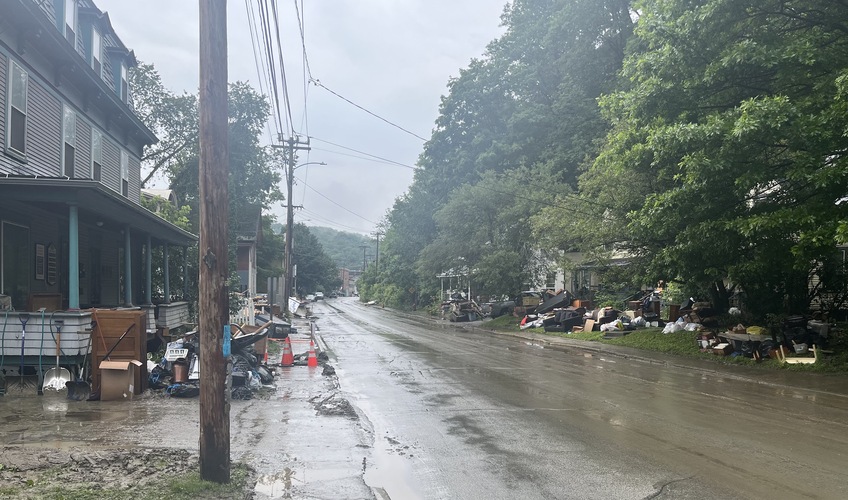MONTPELIER — One low-lying stretch of Elm Street in Montpelier, one block over from Main, runs parallel to the North Branch of the Winooski River. It's one of thousands of similar city and town streets where poor and working- class people live.
Or used to, anyway. Where they live now, I have no idea.
Vermont's cities and towns were largely built along waterways, which were used as open sewers for industries of all kinds. That's why your typical Vermont town has its back to the river. Nobody wanted to be anywhere near it.
So, of course, that's where the poor and working class people lived while their bosses took the high ground. And still today, the poor and working-class people live in low-lying areas prone to flooding because that's where the affordable housing is.
Those areas are more and more flood-prone as climate change bears its fangs. It's a huge and largely unspoken climate justice issue that we have yet to address in any comprehensive or meaningful way.
In the meantime, how many of those people have just joined the ranks of the unhoused - just as Our Betters have shut down eligibility to the motel voucher program except in rare circumstances?
We already had the second-highest homeless rate in the country. We'd evicted hundreds of households in June. Our Betters just created restrictive new rules for voucher eligibility designed to get people the hell out of the motels as quickly as possible.
How much of our completely inadequate rental stock is now unlivable? How much is unsalvageable? Do we know?
* * *
Maybe it's too soon to expect that kind of comprehensive survey. But I do know this: There are thousands of Vermonters, or tens of thousands, who had stable housing arrangements on Sunday, July 9, and lost them on Monday or Tuesday.
Our Betters told us over and over again that they simply couldn't afford to keep the voucher program open until better arrangements could be made. They enacted a restrictive and punitive extension of the program - and didn't appropriate any funds to pay for even that inadequate measure. Until the flooding last week, we could reasonably expect that there'd be enough money around to keep the vouchers coming. But now?
I know that federal disaster aid will pay for a lot of the recovery. But it will take time. Will we get money to reopen the voucher system? Will we get FEMA trailers? Will we get tents from the National Guard?
Possibly. Meanwhile, there's a whole lot of unmitigated misery out there.
Oh, but what about Vermont Strong? Neighbors helping neighbors? Truckloads of emergency supplies being donated? People just showing up to work all day in punishing heat?
All true. But an inadequate substitute for a systematic approach, no matter how noble and selfless we True Vermonters might be.
And in all the brave posturing at press conferences, we have yet to see how our government will respond to a massive exacerbation of a housing/homelessness problem that was already a stain on our carefully tended image.
* * *
Sooner or later, I suspect, we're going to get a shrug of the collective shoulders. We're doing what we can, Our Betters will say. We simply can't afford to do more.
OK, fine. But three things.
First, please take the same approach to restoring infrastructure and helping businesses.
Second, stop with the platitudes about Protecting the Most Vulnerable. Because you haven't been, and I doubt you're going to start now that the scope of the problem has broadened significantly.
And third, devise a program to create abundant low-income housing that's not in flood plains.
